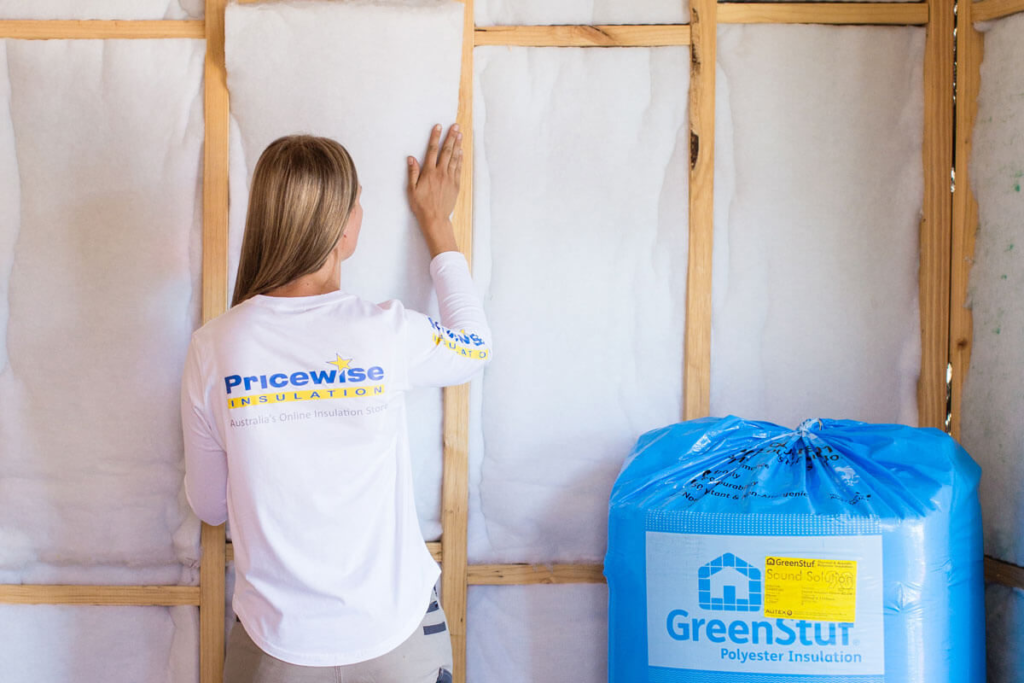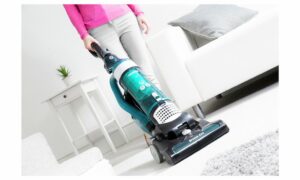Which type of insulation material is best, Glasswool or Polyester?

Glasswool and polyester are two of the most common insulation materials available. But which one is better for your project? Below we take a close look at how each one stacks up against the other so you can make an informed decision.
Which is better at insulating?
The truth is both glasswool and polyester insulation are very effective at insulating. Their performance, in terms of reducing heat transfer, is on par.
If you want your insulation to provide maximum thermal performance, look at the R-Value. The higher the R-Value of an insulation product, the better it can resist heat transfer. Both polyester and glasswool products come in a range of R-Values to suit different applications.
Which is better for a DIY installation?
Both glasswool and polyester insulation batts are easy to handle, cut and secure in place. Some people prefer polyester because it contains no loose fibres. Traditional glasswool products are notorious for the itchiness they can cause. However, more modern glasswool products are much softer to touch and don’t cause as much irritation to the skin.
It’s advised that you install insulation with gloves and long sleeves, whatever material you are using. However, if you are particularly sensitive, polyester might be a more comfortable choice.
Another important consideration is transporting the products to your home or work site. Glasswool has a higher compression factor which means more batts can fit inside a pack compared to polyester. Since glasswool requires less space to transport and install this can make transport more convenient and cost-effective.
Which is healthier?
Both glasswool and polyester are safe to handle, however polyester has an advantage over glasswool in this category. Since polyester doesn’t contain any breathable particles or dust it is suitable for use by people with asthma or severe dust allergies. Polyester insulation is considered non-allergenic, non-irritant and non-toxic.
If you are concerned about the chemicals used in the manufacturing process of insulation, you should look closely at the different brands and what they use. Some glasswool options like Knauf Earthwool use a bio-based binder and don’t contain any harsh chemicals like phenol or formaldehyde. Earthwool also doesn’t use any artificial colouring and is classified as bio-soluble.
Which is more fire resistant?
Glasswool is considered non combustible and typically has better fire resistant properties compared to polyester. It’s important to note that in Australia all insulation must meet certain fire safety standards according to the Building Code of Australia. Therefore, polyester insulation products sold in Australia also have a low fire risk.
Which is better for the environment?
All insulation has environmental benefits to some degree. Well insulated homes tend to use less electricity throughout the year as they are better at regulating inside temperatures. By consuming less electricity, households can help reduce the amount of pollutants and emissions produced.
Most glasswool products are made from high recycled content (mainly glass bottles and flat glass panels). Glasswool products tend to last a long time and at the end of their life, they can be recycled. Additionally, many glasswool manufacturers like Knauf and Bradford have measures in place to reduce waste during their manufacturing processes.
Similarly, polyester products are usually made from a high recycled content from plastic waste like bottles, bags and packaging. Like glasswool, polyester products can be recycled at the end of their life. Many polyester manufacturers like Autex have zero waste programs in place and are certified as Red List Chemical Free.
Which is better when exposed to moisture?
Polyester has better moisture resistant properties than glasswool. Because of this, polyester is often recommended for applications where the insulation will be exposed to high levels of moisture, for example in exposed underfloor applications.
During the installation of glasswool batts it’s important that the area is completely dry. If moisture becomes trapped it can cause mould problems and even reduce the effectiveness of the insulation.
Adequate ventilation is very important to avoid moisture issues with glasswool insulation. The wall or ceiling cavity that is being insulated should not be completely filled. Space should be left for air to flow through as this is crucial for controlling moisture.
Which has better acoustic properties?
Glasswool is a naturally effective acoustic barrier. All glasswool insulation will provide some level of protection from sound transfer, but specialised acoustic insulation batts are the most effective. These are manufactured to be thicker and more dense than traditional thermal insulation.
Polyester is also used to manufacture acoustic products. To compare the effectiveness of different acoustic products, look at the density (kg/m3) and the thickness of the insulation. The higher these are, the better the acoustic performance will be.
Which is better value for money?
Glasswool insulation tends to be cheaper than polyester insulation which is considered more of a premium product. Since their insulating performance is equal, glasswool is usually better value for money. It is also usually cheaper to transport because of its economical compression packaging.
If you are looking for a low-allergenic option that is safe for use by people with severe dust allergies, polyester might be the better option for you. Polyester is also the superior choice for applications where high moisture resistance is required.
Whether you decide to go with polyester or glasswool, installing insulation in your home is a smart choice that will help you feel more comfortable year round. When you buy insulation online, upgrade to a higher R-Value and you’ll be able to save more money on your power bills.






